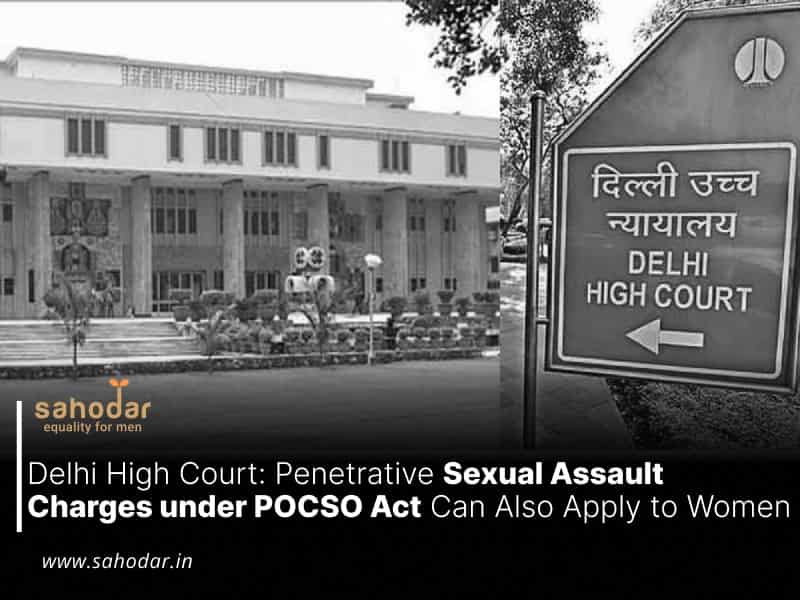High Court ruled that the pronoun ‘he’ appearing in Section 3 of POCSO Act cannot be given a restrictive meaning to say it refers only to a male.
The Delhi High Court recently decided that the crimes of ‘penetrative sexual assault’ and ‘aggravated penetrative sexual assault’ under the Protection of Children from Sexual Offences Act (POCSO Act) can be charged against both men and women [Sundari Gautam v State of NCT of Delhi].
In an order on August 9, Justice Anup Jairam Bhambhani explained that the word ‘he’ in Section 3 of the POCSO Act shouldn’t be limited to just males, based on how the Act is written.
The Court emphasized that the term should be understood to include any offender, regardless of gender.
“It is clear that the pronoun ‘he’ is not defined anywhere in the POCSO Act. In view of the provision of section 2(2) of the POCSO Act, one must fall back upon the definition of that pronoun as it appears in section 8 of the IPC. Giving due regard to the fact that the Legislature enacted the POCSO Act in order to provide protection to children from sexual offences – regardless of whether an offence is committed upon a child by a man or a woman – the court must not interpret any provision of the statute that derogates from the legislative intent and purpose,” the Court said.
The Court also pointed out that the provision covers the insertion of any object, not just a body part, so it wouldn’t make sense to limit the offense to the insertion of a penis alone.
“When viewed from this lens, the only rational inference is that the pronoun ‘he’ appearing in section 3(a), 3(b), 3(c) and 3(d) must not be so interpreted as to restrict the offence engrafted in those sections only to a ‘man’. It is extremely important to note that the said provisions include within the ambit of penetrative sexual assault, the insertion of any object or body-part; or the manipulation of any body part of a child to cause penetration; or the application of the mouth. It would therefore be completely illogical to say that the offence contemplated in those provisions refers only to penetration by a penis,” the Court said.
The Court also observed that the offense defined in Section 375 (rape) of the IPC is different from the offenses described in Sections 3 and 5 of the POCSO Act.
“Though the acts that form the gravamen of the offence in section 375 of the IPC are the same as those in sections 3 and 5 of the POCSO Act, the opening line of section 375 specifically refers to a “man” whereas the opening line of section 3 [POCSO Act] refers to a “person”. The scope and meaning of the word “man” appearing in section 375 of the IPC is not under consideration of this court in the present proceedings. But there is no reason why the word “person” appearing section 3 of the POCSO Act should be read as referring only to a “male”. It is accordingly held that the acts mentioned sections 3 and 5 of the POCSO Act are an offence regardless of the gender of the offender provided the acts are committed upon a child.”
Justice Bhambhani made these points while hearing a plea from a woman named Sundari Gautam, who challenged the trial court’s decision to charge her under Section 6 [punishment for aggravated penetrative sexual assault] of the POCSO Act.
The argument was that since the offenses of “penetrative sexual assault” in Section 3 and “aggravated penetrative sexual assault” in Section 5 of the POCSO Act use the pronoun “he,” they shouldn’t apply to a woman.
The accused argued that the law intended only to hold men responsible for the offense under Section 3 of the POCSO Act.
The Court disagreed and upheld the charges against the accused woman.
Advocates Piyush Sachdev, Raja Chatterjee, Ayushi Arora, Anupama Gupta, and Riya Datta represented the accused.
The State was represented by Additional Public Prosecutor (APP) Utkarsh.

